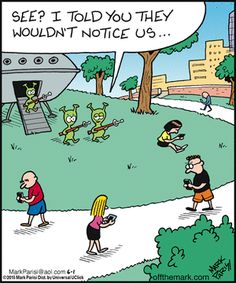So be strong and courageous! Do not be afraid and do not panic before them. For the Lord your God will personally go ahead of you. He will neither fail you nor abandon you. Deuteronomy 31:6 (NLT)
The world can be a scary place, no matter what stage of life you’re in. We’re all afraid of different things, and we all have our own ways of dealing with that fear.
One thing we all have in common, though, is a need for courage. Courage is the character trait that allows us to take on things that are bigger than we are. It comes from knowing that we have access to a power that is stronger than whatever it is we are facing. For this reason, the key to being courageous is making sure that we know and rely upon that power.
It all comes down to trust. It is one thing to believe that God can fight the battles that are beyond our strength. But do you trust that He will? Do you trust Him enough to keep moving forward even when it seems like a risky thing to do?
The answer to that question depends on the answer to this one. Do you believe that God wants you to succeed? I’m not talking about the Joel Osteen “I’m-believing-God-for-a-new-Mercedes” kind of success. I mean do you really believe that God DOESN’T want you to fail at life? Do you believe that He knows what’s best for you and has a plan to help you stay on track for that?
If you do, then you have either learned or are in the process of learning that obedience is the quickest path to success. This means that you pray about major decisions, and even the minor ones. Now I don’t know that it’s necessary to ask God if I should order Sprite or Root Beer at the local diner, but I wouldn’t, for example, buy a car without praying for a green light from above.
If you have established and cultivated this kind of a relationship with God, then you have also learned that fear and faith can not occupy the same mind at the same time. So when we say we “lack courage” or that “our courage has failed us,” what we really mean is that we have not been putting our faith to good use. Here is one way to make sure that doesn’t happen (or at least happens less often).
Practice trusting God with the little things. Ask Him questions about things you could typically handle by yourself and see if He leads you in a different direction. Maybe start with “Which route should I take to work today?” or “Should I get gas now or wait to fill up later?” Simple routine stuff that you do all the time that doesn’t really require “divine intervention.”
The point of this exercise is not for the Holy Spirit to save you 3 cents a gallon. It is to form the habit of trusting by essentially turning your life into a big game of follow the leader. If you trust that God won’t lead you where His grace and power won’t keep you, then you’ll keep following until it becomes second nature.
Forming courageous habits is particularly important for parents. Not only do our kids look to us as an example when they’re young, but someday they’ll be grown and won’t look to us for leadership anymore. We need to do our part to make sure they have courage of their own to lean upon when they run into their own problems. So what can we do now, those of us that still have kids at home?
- Remind your kids of God’s faithfulness. Keep track of His answers to your prayers and tell those stories often.
- Train your kids to seek out other godly mentors besides you. They will probably always want to come to you first, but you won’t always be around. Your kids need to know that they have some control over feelings of isolation, a control that they can carry into adulthood.
- Teach them obedience. The Bible is full of examples of God giving specific instructions, such as in the verse at the top of this post. The Bible is just as full of examples of what can happen when you don’t follow those instructions. Although obedience requires surrender, there is power in this surrender, because you are setting yourself up to succeed by keeping in step with God’s plan for you.
- Practice integrity by saying what you mean, meaning what you say and finishing what you start. Let your yes be yes and your no be no. Trust me on this—if you fail on this one, your kids will pounce on it and use it against you at every opportunity. The result of that will not win you many spouse points either.
Fear happens. Fear of failure happens a lot. Please don’t beat yourself up when it happens to you, as though the fear of failure were a failure in itself. Don’t worry about what other people are going to think of you if you screw up. Anyone who would think badly of you for making a mistake isn’t somebody you ought to be concerned about impressing anyway.
Be strong and courageous. Follow God even if nobody is following you. Acknowledge that your hands are sweaty and that you feel sick to your stomach and move forward anyway. Not everything in life is easy or fun, but with God on your team, ALL things are possible.












